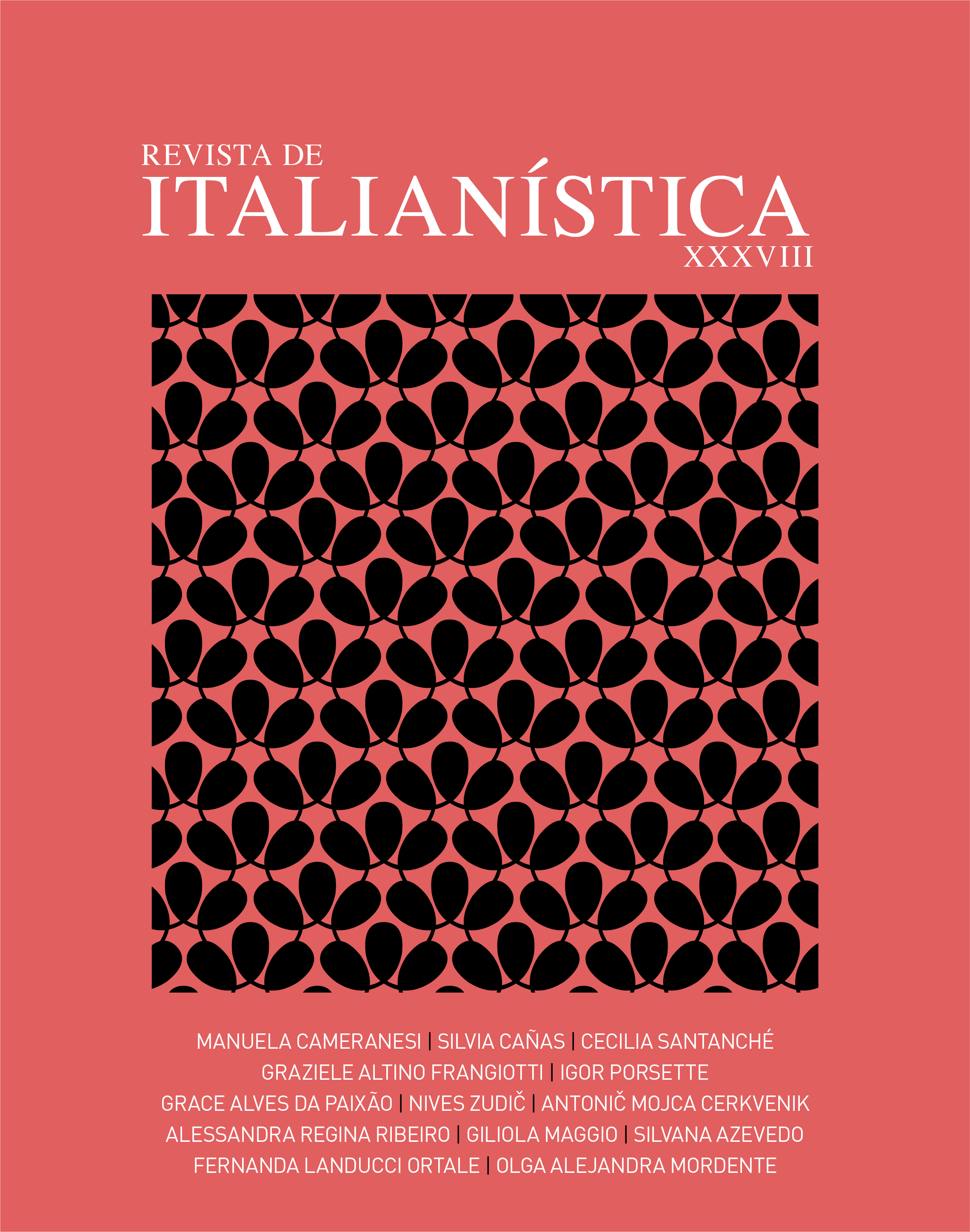The Italian language heritage in the speech and culture of Argentinians: Italianisms and Italianness
DOI:
https://doi.org/10.11606/issn.2238-8281.v0i38p99-111Keywords:
Language of inheritance, Italian immigrants, Descendants, InterviewsAbstract
This work aims to illustrate how culture and language have undergone significant changes in Argentina due to the strong Italian immigration. Usually it is immigrants who adapt to the existing culture, but, in this case, the process was reversed or reciprocal. Our main purpose is, therefore, to present an overview, through testimonials and interviews, of the reasons why a person of Italian origin decides to study the language of their parents or grandparents, considering that 15 to 20 million of Argentines have an Italian ancestor, that is practically half of the population. We want to show how the descendants do not reveal, mostly, traces of an Italian identity, but, on the contrary, an interest in obtaining citizenship more linked to the advantages and facilities that this represents for Argentine citizens.
Downloads
References
DE WEIMBERG, M.B.F. La asimilación lingüística de los inmigrantes. Bahía Blanca: Departamento De Ciencias Sociales Universidad Nacional Del Sur, 1979.
GOBELLO, J. (1977) Diccionario Lunfardo y de otros términos antiguos y modernos usuales en Buenos Aires. Buenos Aires: A. Peña Lillo Editor S. R. L, 1977.
GOBELLO, J.; OLIVERI, M. H. Tangueces y lunfardismos del rock argentino. Buenos Aires: Corregidor, 2001.
GUBITOSI, P. El desafio de enseñar lengua a los hablantes de herencia. In: Identidades dinámicas: variación y cambio en el español de América. La Plata, 2012. Disponível em: http://jornadasfilologiaylinguistica.fahce.unlp.edu.ar.
GUARNIERI, J. C. El habla del lenguaje del boliche: diccionario popular rioplatense. Montevideo: Editorial Florensa & Lafon, 1967.
LE BIHAN, U. Italianismos en el habla de la Argentina: herencia de la inmigración italiana. Cocoliche y lunfardo. Universidade de Oslo, Master, 2011. Disponível em: http://www.duo.uio.no.
MEO ZILIO, G. El elemento italiano en el habla de Buenos Aires y Montevideo. Firenze: Valmartina Editore, 1970.
SOARES CAMPOS DUARTE, S.M. de C. Português Língua de Herança: da Teoria à Prática. Dissertação. 2012. Faculdade de Letras – Universidade do Porto.
TERUGGI, M.E. Panorama del lunfardo. Buenos Aires: Ediciones Cabargon, 1974.
Downloads
Published
Issue
Section
License
Copyright (c) 2020 Revista de Italianística

This work is licensed under a Creative Commons Attribution-NonCommercial-NoDerivatives 4.0 International License.
A revista retém os direitos patrimoniais dos artigos e os publica simultâneamente sob uma Licença Creative Commons-Atribuição-Não Comercial-Sem Derivações.



